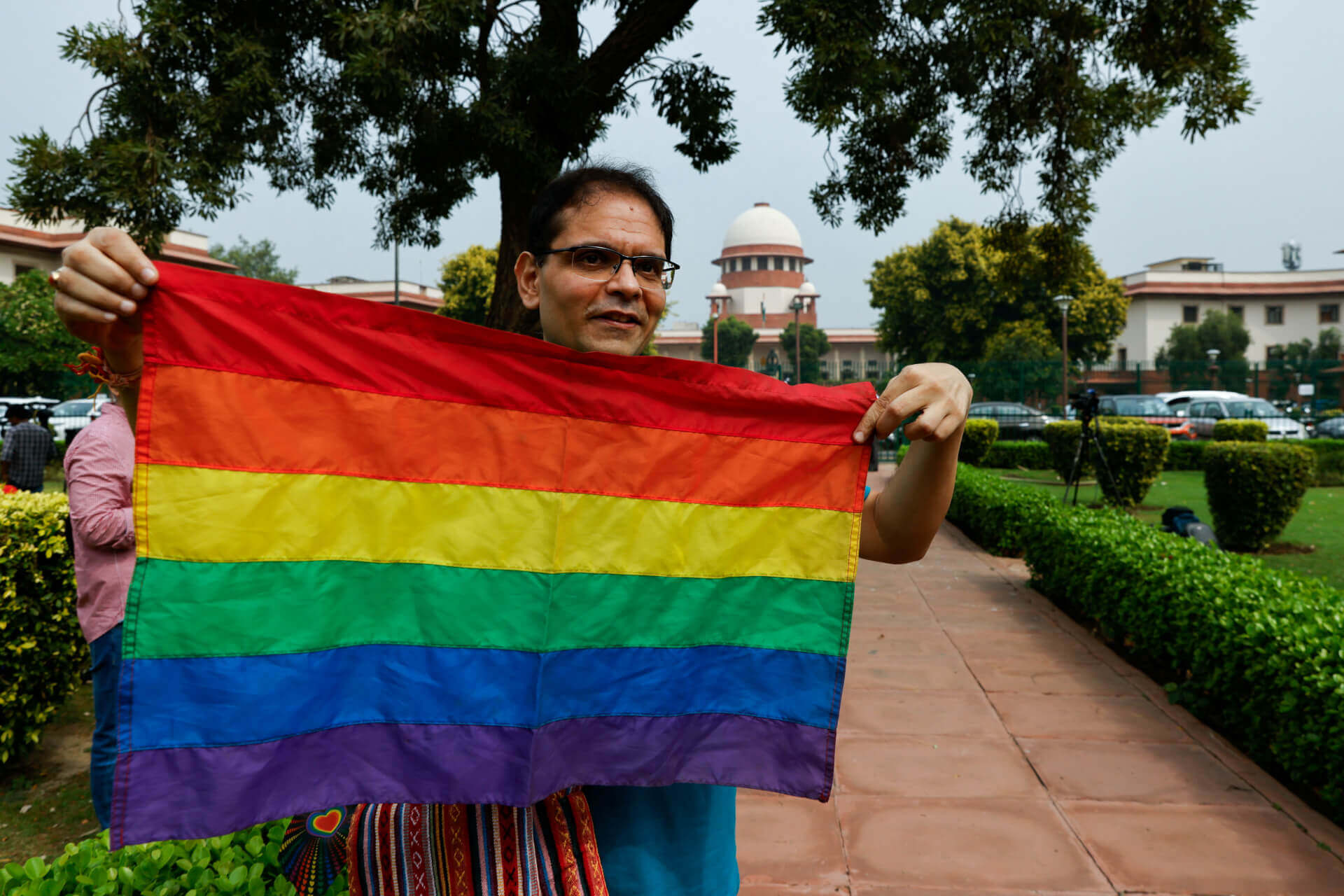On Tuesday, the Indian Supreme Court declined to grant legal recognition to same-sex couples to marry or form civil unions, saying that it is in the domain of the parliament to make laws regarding the same.
The five-judge bench led by the Chief Justice of India (CJI), Justice DY Chandrachud, included Justices SK Kaul, SR Bhat, Hima Kohli and PS Narasimha.
No Marital Rights, No Adoption Rights
The divided bench took the decision in a 3:2 judgment during hearings on 21 pleas seeking the legal validity for same-sex marriages.
While the court said it is for the Parliament and state legislatures to recognise gay marriages legally, all five judges agreed there is no fundamental right to marry.
Thousands of LGBTQ+ people remain disappointed with India's legal framework of exclusion, as Supreme Court refuses legalisation of same-sex marriage#LGBTQIA #SameSexMarriage #GayMarriage #MarriageEquality #SpecialMarriageAct | @KuheenaSharma pic.twitter.com/7eQzAIC7se
— News18 (@CNNnews18) October 17, 2023
In the judgment, the CJI said the court could neither strike down nor read words into the Special Marriage Act to include same-sex members within the ambit of the 1954 law.
Meanwhile, the CJI directed the Union Government to constitute a committee deciding the rights and entitlements of people in queer unions.
He said that the committee would consider the inclusion of queer couples as ‘family’ in ration cards, enabling queer couples to nominate for joint bank accounts, and obtain rights flowing from pensions and gratuity, among other things.
CJI Chandrachud and Justice Kaul gave dissenting judgments, while Justices Bhat, Kohli and Narasimha delivered the majority judgment.
No Adoption Rights
On the one hand, the majority opinion said that while queer people have the right to choose their partners, they do not have the right to marry, adopt or form civil unions.
On the other hand, the minority opinion stated that queer couples have the right to recognise their relationships as civil unions and can claim consequential benefits.
The CJI held that transgender persons in heterosexual relationships had the right to marry under the existing laws.
He further remarked that the Central Adoption Resource Authority (CARA) regulations prohibiting unmarried and queer couples from adopting children violates Article 15 of the Indian Constitution.
The judgment of the CJI was opposed by Justice Bhat, who said, “All queer persons have the right to choose their partners. But State cannot be obligated to recognise the bouquet of rights flowing from such a Union.”
Hotline, Safehouses for Queer Couples
The CJI said police should conduct preliminary enquiries before registering an FIR against a queer couple.
The court said that the Centre and State governments must sensitise the public about queer rights, create a hotline for the community, and create safe houses, ‘Garima Grih,’ for queer couples.
The court also directed the government to ensure that intersex children are not forced to undergo operations and that no person is forced to undergo hormonal therapy.
Need for Separate Anti-Discrimination Law
The CJI remarked, “Homosexuality or queerness is not an urban concept or restricted to the upper classes of the society.”
India’s Supreme Court has declined to approve same-sex marriages in a blow for LGBTQ rights in the world’s most populous country ⤵️ https://t.co/4zM6oW9gU0
— Al Jazeera English (@AJEnglish) October 17, 2023
The CJI advocated the need for a separate anti-discrimination law, which Justice Kaul supported.
“Non-heterosexual unions are entitled to protection under the Constitution,” said Kaul.
LGBTQIA+ Rights in India
While giving his judgment, Justice SK Kaul remarked that “legal recognition of same-sex unions is a step toward marriage equality.”
India decriminalised homosexuality in 2018 by striking down Section 377 of the Constitution in the Navtej Johar case. However, the country does not recognise same-sex marriages or civil unions.
The latest judgment is a blow to the LGBTQIA+ community of India as it has not brought about any significant change in the present laws.
With the ball landing in the court of government, which has repeatedly held that same-sex marriages are not comparable with the “Indian Family Unit,” there is a grim possibility of legislation favouring the community.

